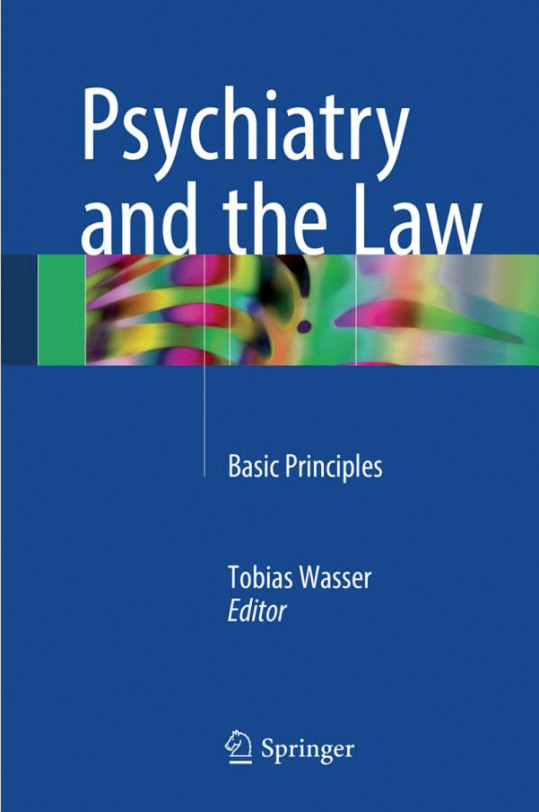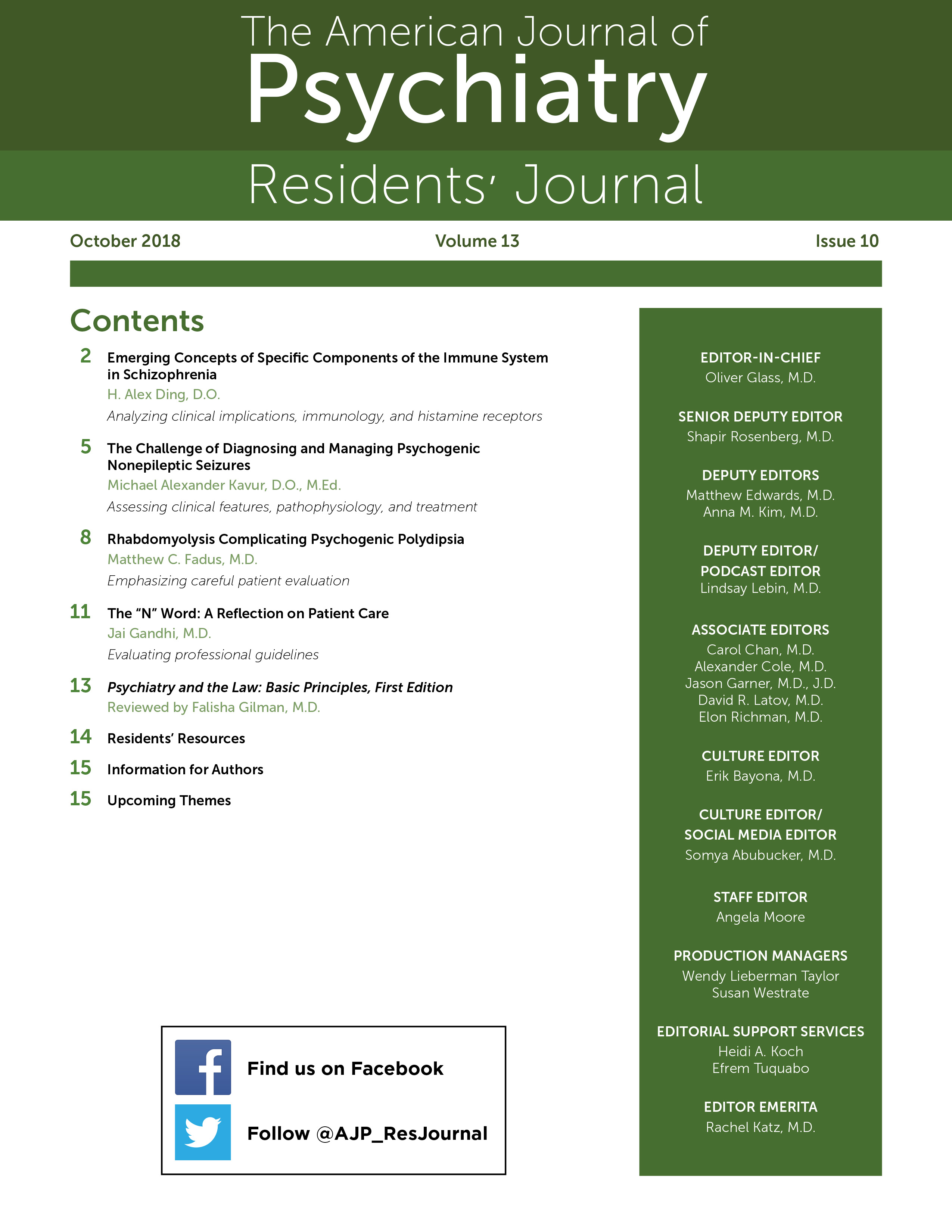Most days when I open my browser to check the news, there is something related to forensic psychiatry. Whether it's the epidemic of gun violence, the opioid crisis, or the growing number of incarcerated persons with psychiatric illness, now more than ever it is crucial that all psychiatrists understand the medico-legal system and how it affects our patients.
Most residents will not complete a forensic psychiatry fellowship, which can leave psychiatrists feeling uncertain about their knowledge when it comes to topics such as duty to third persons, civil commitment, and malpractice. Psychiatry and the Law: Basic Principles, edited by Tobias Wasser, M.D, a former Deputy Editor of the American Journal of Psychiatry Residents' Journal, is a well-researched, readable text that can help residents fill this knowledge gap.
The book is committed to case-based learning, helping readers to apply knowledge to scenarios that they are likely to encounter in the clinic. Each chapter begins with an engaging and challenging case, and the reader is asked how he or she would proceed. The scenarios are used to explain related landmark court cases, ethical considerations, and historical contexts that continue to affect daily practice. The chapter on Voluntary and Involuntary Hospitalization, for example, describes a common clinical situation: a patient agrees to voluntary hospitalization but does not have the capacity to make this decision. In a description of the U.S. Supreme Court case Zinermon v. Burch, readers learn how and why patients must demonstrate capacity in order to sign voluntary admission forms, even if they agree to hospitalization. This chapter also elaborates on the history of psychiatric hospitalization, including the maltreatment of patients with psychiatric disorders, as well as the movements of the 1960s that prioritized patients' civil rights. Readers are reminded that psychiatry is the most regulated specialty, and for good reason, because psychiatrists have the ability to deny patients their civil liberties via involuntary commitment.
What makes this book unique is its generalizability, from refining personal knowledge of topics such as involuntary medication to teaching medical students about suicide risk assessment. Although it can be read from cover to cover, it can also be used as a refresher on civil competence or as a brief introduction to child and adolescent forensic psychiatry.
The legal system is complex and dynamic. Psychiatry and the Law is a useful text for trainees seeking to understand the interactions between the judicial system and psychiatric practice and how this affects the care we deliver to our patients.

